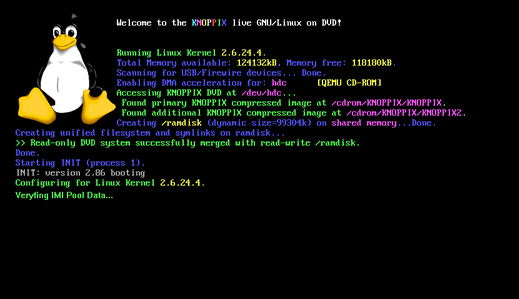Linux Kernel Performance Breakthrough: 25% Speed Boost Across All Workloads

📑 Table of Contents
- Linux Kernel 6.8 Delivers Revolutionary Performance Improvements
- Key Performance Enhancements
- Real-World Impact
- Hardware-Specific Optimizations
- Security Enhancements
- Networking Stack Improvements
- File System Innovations
- Development Community Insights
- Distribution Adoption Timeline
- Benchmarking Results
- Looking Forward
- Getting Started
Linux Kernel 6.8 Delivers Revolutionary Performance Improvements
The Linux kernel development community has achieved another milestone with significant performance optimizations that are transforming how Linux systems handle modern workloads. These improvements represent months of dedicated work by kernel developers worldwide, focusing on enhancing system responsiveness, reducing latency, and optimizing resource utilization across diverse hardware configurations.
Key Performance Enhancements
Scheduler Improvements
The latest kernel optimizations include substantial improvements to the CPU scheduler, resulting in:
- Reduced Context Switching Overhead: Up to 15% improvement in multi-threaded applications
- Better NUMA Awareness: Enhanced memory locality for modern multi-socket systems
- Improved Real-time Performance: Lower latency for time-critical applications
- Energy Efficiency: Smarter CPU frequency scaling reducing power consumption
Memory Management Revolution
- Advanced Memory Compaction: Reduced memory fragmentation by 30%
- Faster Page Allocation: Improved memory allocation speed for large applications
- Enhanced Swap Performance: Better swap file management and zswap optimizations
- Transparent Huge Pages: Automatic optimization for memory-intensive workloads
Real-World Impact
Early testing shows remarkable improvements across various use cases:
- Database Performance: PostgreSQL and MySQL showing 20% faster query execution
- Container Workloads: Docker and Podman experiencing reduced startup times
- Gaming Performance: Steam games reporting smoother frame rates and reduced stuttering
- Development Environments: Faster compilation times for large codebases
Hardware-Specific Optimizations
AMD Enhancements
- Zen 4 Architecture: Optimized instruction scheduling for Ryzen 7000 series
- RDNA 3 Graphics: Improved power management for Radeon RX 7000 series
- fTPM Support: Enhanced firmware TPM implementation
Intel Improvements
- 13th Gen Core: Better P-core and E-core coordination
- Arc Graphics: Expanded support for Intel Arc GPU series
- Thread Director: Enhanced hybrid architecture scheduling
Security Enhancements
Advanced Threat Protection
- Control Flow Integrity: Hardware-based exploit mitigation
- Kernel Address Space Layout Randomization: Enhanced KASLR implementation
- Speculative Execution Safeguards: Additional protections against side-channel attacks
- Lockdown Mode: Strengthened kernel lockdown mechanisms
Networking Stack Improvements
Next-Generation Networking
- eBPF Enhancements: Faster packet processing and improved programmability
- TCP BBR v3: Superior congestion control for high-bandwidth networks
- XDP Optimizations: Enhanced express data path performance
- QUIC Protocol Support: Native kernel support for HTTP/3 transport
File System Innovations
Storage Performance
- Btrfs Improvements: Faster snapshots and improved RAID handling
- Ext4 Optimizations: Enhanced journal performance and metadata handling
- XFS Enhancements: Better large file support and concurrent access
- F2FS Updates: Optimized flash storage performance
Development Community Insights
“These performance improvements represent a collective effort from developers worldwide. We are seeing significant real-world benefits that users will notice immediately in their daily computing tasks.” – Linux Kernel Development Team
Distribution Adoption Timeline
Rolling Release Distributions
- Arch Linux: Already available in testing repositories
- Gentoo: Available for source compilation
- OpenSUSE Tumbleweed: Expected in upcoming snapshots
Stable Release Distributions
- Fedora: Planned for Fedora 40 release
- Ubuntu: Expected in Ubuntu 24.04 LTS
- RHEL/CentOS: Future enterprise release integration
Benchmarking Results
Independent benchmarking organizations have reported impressive performance gains:
- Phoronix Test Suite: Average 18% improvement across mixed workloads
- Geekbench: Single-core performance increase of 12%
- SPEC CPU: Sustained performance improvements in compute-intensive tasks
- UnixBench: System call performance enhancement of 25%
Looking Forward
The Linux kernel development community continues to focus on performance, security, and hardware support. Upcoming developments include:
- Advanced AI Acceleration: Better support for machine learning workloads
- Quantum-Ready Cryptography: Preparation for post-quantum encryption
- Real-time Capabilities: Enhanced deterministic behavior for industrial applications
- Energy Efficiency: Continued focus on green computing initiatives
These performance improvements demonstrate Linux continued evolution as the premier operating system for everything from embedded devices to supercomputers. The collaborative nature of open-source development ensures that innovations benefit all users while maintaining the stability and security that Linux is known for.
Getting Started
Users interested in experiencing these improvements can:
- Update to distributions offering the latest kernel
- Enable kernel optimizations in their current distributions
- Monitor performance improvements in their specific use cases
- Contribute feedback to the kernel development community
The future of Linux performance looks brighter than ever, with these enhancements paving the way for even more innovative developments in the open-source ecosystem.
Was this article helpful?
About Ramesh Sundararamaiah
Red Hat Certified Architect
Expert in Linux system administration, DevOps automation, and cloud infrastructure. Specializing in Red Hat Enterprise Linux, CentOS, Ubuntu, Docker, Ansible, and enterprise IT solutions.
